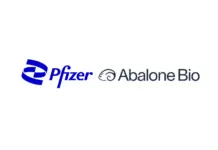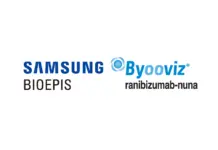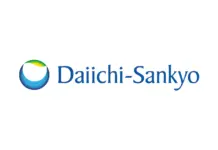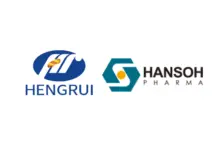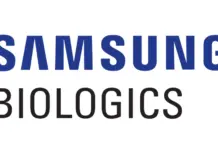Genentech, a member of the Roche group announced data from three positive, pivotal Phase III studies of ocrelizumab in people with relapsing multiple sclerosis (MS) and primary progressive multiple sclerosis (PPMS).
Data from two identical studies (called OPERA I and OPERA II) in people with relapsing MS, which affects approximately 85 percent of people with MS at the time of diagnosis, showed ocrelizumab was superior to interferon beta-1a (Rebif®), a well-established MS therapy, in reducing the three major markers of disease activity over the two-year controlled treatment period.
In a separate study (called ORATORIO) in people with PPMS, a form of the disease marked by steadily worsening symptoms and typically without distinct relapses or periods of remission, ocrelizumab significantly reduced the progression of clinical disability sustained for at least 12 weeks (the primary endpoint) and 24 weeks (a secondary endpoint) compared with placebo. Additionally, the study met other secondary endpoints of reducing the time required to walk 25 feet, the volume of chronic inflammatory brain lesions, and brain volume loss.
“The results of these three pivotal trials have the potential to transform the treatment of MS,” said Sandra Horning, M.D., chief medical officer and head of Global Product Development. “Ocrelizumab is the first investigational medicine to significantly reduce disability progression in people with relapsing MS and people with primary progressive MS – a form of MS with no approved treatments. We are eager to work with regulatory authorities to bring this investigational medicine to the MS community as soon as possible.”
“These results redefine our understanding of MS by highlighting the central role of the B cell,” said Stephen Hauser, M.D., chair of the Scientific Steering Committee of the OPERA studies and chair of the Department of Neurology at the University of California San Francisco School of Medicine. “The findings may also encourage the MS community to look more closely at earlier treatment of the disease.
Currently, many doctors reserve what are considered highly effective MS medicines until a patient’s disease becomes more advanced. Patients and their doctors need new treatment options that offer the potential for greater efficacy than a standard-of-care interferon with a similar safety profile.”
“This is an important moment for the MS community,” said Xavier Montalban, M.D., Ph.D., chair of the Scientific Steering Committee of the ORATORIO study and professor of Neurology and Neuroimmunology at Vall d’Hebron University Hospital and Research Institute, Barcelona, Spain. “For decades, trial after trial has failed to show the benefit of any medicine for people with primary progressive MS. Now, for the first time, we have a positive Phase III study result for people with this debilitating form of the disease.”
Genentech plans to pursue marketing authorization for ocrelizumab in relapsing MS and in PPMS. Data from the ocrelizumab OPERA I and OPERA II studies and from the ORATORIO study will be submitted to the U.S. Food and Drug Administration in early 2016.
About the OPERA I and OPERA II studies in relapsing MS
Results from the OPERA I and OPERA II studies will be presented by Dr. Hauser on Friday, October 9 (Abstract #246, 2:40-2:52 PM CET). OPERA I and OPERA II are Phase III, randomized, double-blind, double-dummy, global multi-center studies evaluating the efficacy and safety of ocrelizumab (600 mg administered by intravenous infusion every six months) compared with interferon beta-1a (44 mcg administered by subcutaneous injection three times per week) in 1,656 people with relapsing forms of MS (i.e., relapsing-remitting MS and secondary-progressive MS with relapses).1
In the OPERA I and OPERA II studies, ocrelizumab significantly reduced the annualized relapse rate (ARR) – the primary endpoint of both studies – by nearly 50 percent compared with interferon beta-1a over the two-year period. Additionally, ocrelizumab met secondary endpoints of the study, significantly delaying confirmed disability progression (CDP; loss of physical abilities, measured by the Expanded Disability Status Scale, or EDSS) by approximately 40 percent sustained for both 12 and 24 weeks compared with interferon beta-1a in pre-specified, pooled analyses of the two studies (p=0.0006 and p=0.0025, respectively). Ocrelizumab also significantly reduced acute MS-related inflammation and brain injury (total number of T1-gadolinium-enhancing lesions measured by magnetic resonance imaging, or MRI) at 24, 48 and 96 weeks by more than 90 percent and the emergence of more chronic or growing areas of MS-related brain injury (T2 hyperintense lesions) at 24, 48 and 96 weeks by around 80 percent compared with interferon beta-1a.
Data from the Phase III studies in patients with relapsing MS showed:
A 46-percent and 47-percent reduction in the ARR compared with interferon beta-1a over the two-year period in OPERA I and OPERA II, respectively (p<0.0001 and p<0.0001).
A 43-percent and 37-percent risk reduction in CDP sustained for 12 weeks compared with interferon beta-1a in OPERA I and OPERA II, respectively (p=0.0139 and p=0.0169).
A 43-percent and 37-percent risk reduction in CDP sustained for 24 weeks compared with interferon beta-1a in OPERA I and OPERA II, respectively (p=0.0278 and p=0.0370).
A 94-percent and 95-percent reduction in the total number of T1 gadolinium-enhancing lesions compared with interferon beta-1a in OPERA I and OPERA II, respectively (p<0.0001 and p<0.0001). A 77- percent and 83-percent reduction in the total number of new and/or enlarging hyperintense T2 lesions compared with interferon beta-1a in OPERA I and OPERA II, respectively (p<0.0001 and p<0.0001).
Overall, the proportion of patients in the ocrelizumab group with adverse events was similar to interferon beta-1a in a pooled analysis of both studies (83.3 percent in each treatment group); the most common adverse event associated with ocrelizumab was infusion-related reactions (34.3 percent of patients who received ocrelizumab experienced at least one infusion-related reaction vs. 9.7 percent for interferon beta-1a). The proportion of patients in the ocrelizumab group with serious adverse events, including serious infections, was also similar to interferon beta-1a (6.9 percent vs. 8.7 percent,
respectively).
About the ORATORIO study in PPMS
Results from the ORATORIO study will be presented as a late-breaking abstract by Professor Montalban on Saturday, October 10 (Abstract #2368, 8:52-9:03 AM CET). ORATORIO is a Phase III, randomized, double-blind, global multi-center study evaluating the efficacy and safety of ocrelizumab (600 mg administered by intravenous infusion every six months; given as two 300 mg infusions two weeks apart) compared with placebo in 732 people with PPMS.2 In contrast to the OPERA I and OPERA II studies, where the blinded treatment period was two years, the blinded treatment period of the ORATORIO study continued beyond that until all patients had received at least 120 weeks of either ocrelizumab or placebo and a predefined number of CDP events was reached overall in the study.
The ORATORIO study met its primary endpoint, showing treatment with ocrelizumab significantly reduced the risk of progression of clinical disability sustained for at least 12 weeks by 24 percent compared with placebo, as measured by the EDSS (p=0.0321). Additionally, ocrelizumab was superior to placebo in significantly reducing the risk of progression of clinical disability for at least 24 weeks by 25 percent (p=0.0365) and the time required to walk 25 feet (Timed 25-Foot Walk, or T25-FW) over 120 weeks by 29 percent (p=0.0404). Ocrelizumab decreased the volume of hyperintense T2 lesions by 3.4 percent over 120 weeks, compared to placebo which increased T2 volume by 7.4 percent (p<0.0001). Ocrelizumab reduced the rate of whole brain volume loss over 120 weeks by 17.5 percent compared to placebo (p=0.0206).
Overall, the proportion of patients in the ocrelizumab group with adverse events was similar to placebo (95.1 percent vs. 90.0 percent, respectively); the most common adverse event associated with ocrelizumab was infusion-related reactions (39.9 percent vs. 25.5 percent for placebo). The proportion of patients in the ocrelizumab group with serious adverse events, including serious infections, was also similar to placebo (20.4 percent vs. 22.2 percent, respectively).









